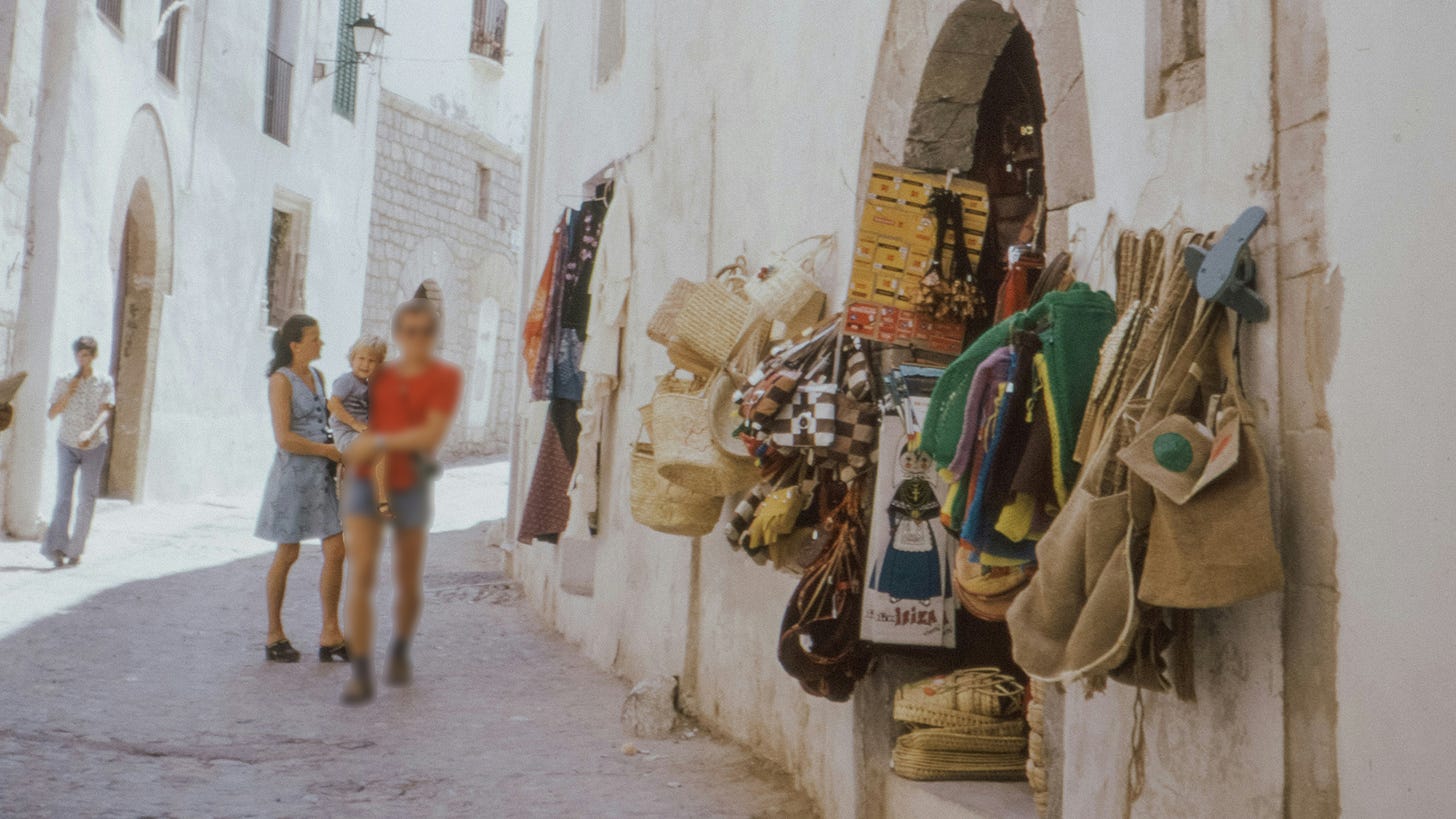Making memories
My dad, in a cafe on Praed St in Paddington. In front of him is a strawberry tart and a latte. In front of me is a desiccated Viennese whirl that I am having to hack up with a blunt fork. The cafe is not particularly nice, but we had an hour to kill before dad’s hospital appointment, and the cakes in the front window reminded me of Café Mozart.
‘Do you remember Café Mozart, dad?’
‘Yes! That was where your mother took you whenever she wanted to give you a treat. So, almost every day.’
A long-handled latte spoon appears above my plate; my dad, noticing the state of my Viennese whirl, has decided to give me all the strawberries off his tart.
In East Sheen in London, where I grew up, there’s a row of Edwardian shop units with huge floor-to-ceiling windows and elaborate tiled porches. In the 1970s this was where you would find Café Mozart, a sedate tribute to the kaffeehäuser of nineteenth century Vienna. Its antique window was full of fantastically intricate cakes; the waiters wore black waistcoats and the waitresses had caps and frilly white aprons. The coffee cups were delicate and the pastry forks were silver.
My family was happy and insular. In retrospect we were also quite smug. We thought we had a special kind of emotional vibrancy; we were disproportionately invested in our Welsh identity, and we believed we were special. None of this stopped my mother and my brother dying young. There are probably other people who remember Café Mozart but I don’t know who they are, and you can’t just wander the streets asking people.
Now, my dad has Alzheimer’s. It’s a shitty disease and it hits my dad - a powerful, effective, independent man - in a particularly painful way. But one of the great things about him is his lack of self-pity. When I go to see him the day after our visit to Paddington he’s watching an episode of M*A*S*H*, one of his favourite TV shows ever. ‘I’ve never actually watched M*A*S*H*’, I say. ‘In a way, neither have I,' he says, and cackles.
I was apprehensive about watching the 2020 film The Father because its set-up was a little too close to my experience. It’s about an 80-something Welshman who moved to London decades ago and who now has dementia (Anthony Hopkins). He has been successful, independent and effective, and now he cannot bear his infantilisation. His wife and one of his two adult children have died. His sole surviving family member is a doughy daughter, born and raised in London and now in her fifties (Olivia Colman).
I mean, thanks, guys. You really shouldn’t have.
Another reason I didn’t really want to watch The Father was that it’s a portrait of an unhappy family unit, and I had no appetite for watching parallel-me and parallel-dad screaming abuse at each other. I also had low expectations: I thought The Father was going to use memory loss as a plot mechanism for a paranoid domestic conspiracy thriller. Is his perception faulty? Or are they really out to get him?
And for a while, that’s what The Father appears to be: a queasy paranoid mystery. The opening scenes are soundtracked by a cold, eerie opera track. There are scenes of violence and elder abuse. There are early hints that the daughter and the son-in-law are machinating to get their hands on the father’s palatial Maida Vale flat, and exploiting his confusion to make him feel madder than he is.
But gradually you realise that that’s not what you’re watching at all; you’re simply watching the inside of Anthony’s head. (The Father’s name is Anthony. The role, adapted by the director Florian Zeller from his own French stage play, was rewritten for Hopkins; he won a well-deserved Oscar for it.)
Some of the things we see ‘really’ happened, and some probably didn’t. We cannot be sure which is which. You’re being shown what it might be like, when your perception breaks down; when you don’t recognise close family members; when you don’t understand why anything is happening. You might, for instance, come to the perfectly rational conclusion that the entire world has gone crazy, and that you are deeply unsafe.
It’s a revelatory portrayal of what it might be like to have advanced dementia. I really think they should hand out the DVDs to family members on diagnosis, possibly accompanied by Tobias’s warning that ‘this is the most frightening thing I have ever watched’. I consider myself reasonably good at getting inside other people’s heads, but after watching The Father my empathy for my dad’s experience increased by a factor of roughly ten thousand. (My dad’s Alzheimer’s is mild, rather than advanced, and his deterioration is slow; he might well never become as ill as The Father.) Among other things, it’s a great primer in how not to interact with someone who has dementia.
Keep reading with a 7-day free trial
Subscribe to The Metropolitan to keep reading this post and get 7 days of free access to the full post archives.



